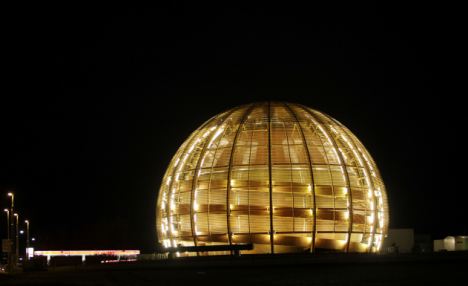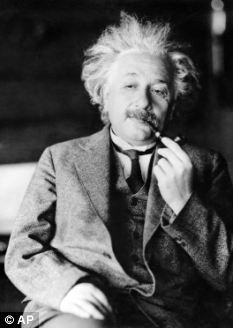
Physicists at the European Organization for Nuclear Research (CERN), the international nuclear research facility near Geneva, Switzerland, are saying that an experiment in which a beam of neutrinos were sent 500 miles from CERN to a laboratory in Italy has thrown up a quite staggering result.
Specifically, the specialists found that the particles got there 60 billionths of a second quicker than the light speed limit allowed.
This was not a one-off; 15,000 neutrinos were detected and the results collated over three years.

The physicists say the result is so extraordinary that it may well be a mistake but they also say they cannot see where they might have gone wrong and have thrown open the doors to the international scientific community to check, double-check and triple-check what is going on.
If these neutrinos really are travelling faster than light, this will overturn everything we think we know about the basic physics that underpins the way we think the Universe works.
In 1905, Albert Einstein, in his Special Theory of Relativity, demonstrated that the speed of light which is equal to 186,000 miles/second or around six hundred million mph, is a universal constant. Albert Einstein’s genius was to weave together space, time, velocity, energy and mass into a fundamental interconnected whole.

Breaking the light speed limit is not just some piece of awkward physics bureaucracy. The limit is actually a fundamental reflection of the way space and time are put together.
One outcome of travelling faster than light is that the mass and energy of the object travelling this fast become infinite. This is clearly absurd.
Another consequence is that anything travelling faster than light also goes backwards in time. This would violate another basic tenet, not only of physics but of our basic philosophical comprehension of how the world works. If we go back in time, we violate the principle of causality which says cause must precede effect.
It is possible, as the scientists freely admit, that they’ve made a mistake. After all, these neutrinos only broke the light speed barrier by about 12,000 mph, a tiny fraction of light speed. But intriguingly, the result of the “opera” (oscillation project with emulsion tracking apparatus) seems to have been mirrored in a couple of other experiments in the US.
If the result is correct, we have to assume that specialists have discovered something truly extraordinary, perhaps as significant as Albert Einstein’s original findings.
If things can travel faster than light, the Universe cannot be as physics assumed it to be for 106 years. Rule books will be torn up, hair will be torn out and new careers will be forged, explaining what on earth is going on.
I just got back from the future, and boy did I gain weight.
Watch this video! : http://www.youtube.com/watch?v=cDCMTRfT7rs
The theory of relativity is not wrong! We have received the information about neutrino before his physical arriving ! The particles speak each other with an infinite speed ! Only the travel cannot go over the speed of light ! It is possible to find GOLD SECTION inside the theory of relativity calculating the transversal mass! We must sum the weight of body with the weight of space time to find the weight astronomical observed !
Einstein could have miscalculated the entire theory. Special relativity could all be backwards. Until supercomputers get faster, we’ll just have to wait and see. In the meantime, anything and everything is possible.